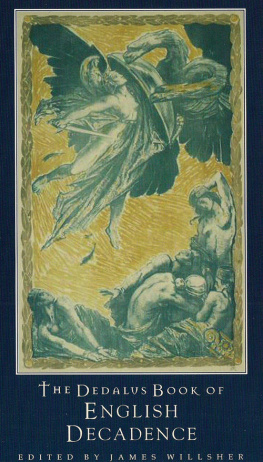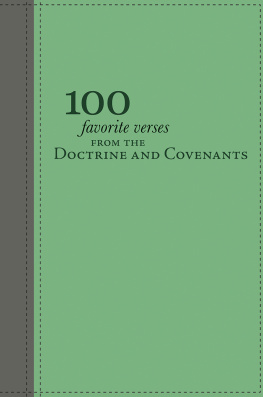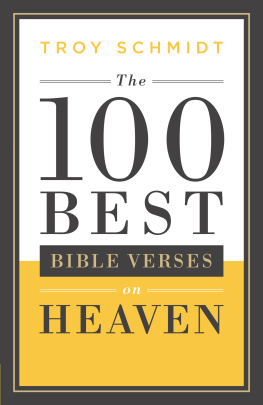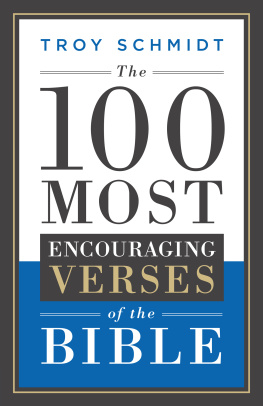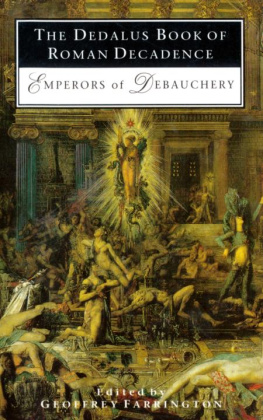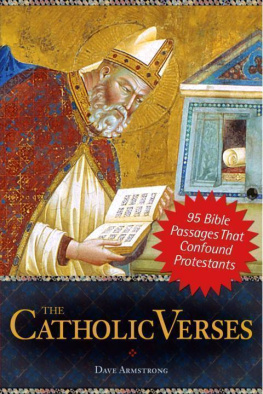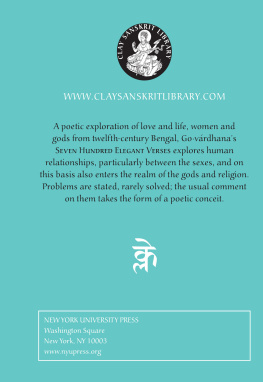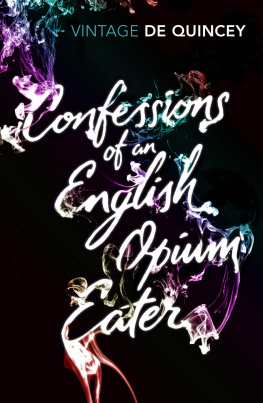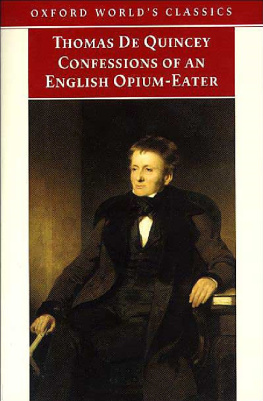
The editor is a pale clerk who lives in East Anglia. He scours the country in search of lost and forgotten books.
The editor would like to thank Eric Lane, Phil Baker and Robert Irwin for their invaluable help with compiling this book. Thanks are also due to Robert Bass, Peter Mornard, Jamie Reynolds, Dr John Byrne, Dr Paul Dawson, Professor John Woolford and Dr Malcolm Hicks.
The editor would like to thank the following for the use of copyright material:
Extracts from A Defence of Cosmetics and Enoch Soames by Sir Max Beerbohm are reprinted by permission of Marc Berlin.
Ennui by Lord Alfred Douglas is reprinted by permission of John Rubinstein and John Stratford.
The Decadent to his Soul by Richard Le Gallienne is reprinted by permission of the Society of Authors.
Passages from The Great God Pan by Arthur Machen are reprinted by permission of A. M. Heath Authors Agents & Co. Ltd.
In Bohemia, The Absinthe-Drinker, The Opium-Smoker, and Stella Maris are reprinted by permission of Brian Read, M. A.
This is for my family and for Gulay.
CONTENTS
1. Oscar Wilde
2. Edward Gibbon
3. William Cowper
4. William Beckford
5. Lord Byron
6. Bryan Waller Procter (Barry Cornwall)
7. William Beckford
8. Lord Byron
9. Percy Bysshe Shelley
10. John Keats
11. Lord Byron
12. Thomas De Quincey
13. Thomas Lovell Beddoes
14. John Keats
15. Felicia Dorothea Hemans
16. Alfred, Lord Tennyson
17. Dante Gabriel Rossetti
18. Algernon Charles Swinburne
19. Walter Pater
20. Sir W. S. Gilbert
21. Algernon Charles Swinburne
22. Oscar Wilde
23. George Moore
24. James Thomson
25. Algernon Charles Swinburne
26. Walter Pater
27. Oscar Wilde
28. Ernest Dowson
29. Arthur Symons
30. Lionel Johnson
31. Richard Le Gallienne
32. Sir Max Beerbohm
33. Ernest Dowson
34. Lionel Johnson
35. Arthur Symons
36. Arthur Machen
37. John Gray
38. Lord Alfred Douglas
39. Sir Max Beerbohm
40. Arthur Symons
41. Theodore Wratislaw
42. Aubrey Beardsley
43. John Gray
44. John Davidson
45. James Elroy Flecker
46. H. B. Marriott Watson
47. Richard Garnett
48. Ernest Dowson
49. Arthur Symons
Ah, what a divine celebration was the auto-da-f of November 1707 how charming and modest it must have been in its holy but gay simplicity. What a fine mixture of fireworks and of flames from burning Jews, of torments below and dancing above ground, of opera Ah, happy times, if only they could return
This is William Beckford, millionaire aesthete, plantation owner, author of Vathek, and the first true English decadent. On the death of his father in 1770, the nine year old Beckford inherited one of the largest fortunes in England, derived from the spoils of empire: West Indian sugar cane. Great wealth should have brought great responsibility, but he admirably ignored this all his life, pursuing instead a career of committed sensualism. Like Byron, he courted the scandal of adulterous and incestuous affairs; like Wilde, a furious aristocrat ruined his reputation. Beckford was the godfather of an English decadence that blossomed in the 1890s, but first emerged in the latter half of the eighteenth century.
At first glance though, decadence may not appear particularly English at all. The nineteenth century looked to France for fiery poetry and prose, and with good reason. It was a time of unfettered imagination, the time of Thophile Gautier, Stphane Mallarm, Charles Baudelaire, Gustave Flaubert, Arthur Rimbaud, Paul Verlaine, Joris-Karl Huysmans, and Octave Mirbeau. The French decadent was typically fatigued by a world-weariness, suspicious of all passion, and had settled for a life of bored debauchery. The modern English decadent though drew deeply from the aestheticism of John Keats, the Pre-Raphaelites and Walter Pater, and so insisted upon seeing a beauty in all things, no matter how revolting. From the mid-nineteenth century it has been understood that France was the genesis of all things decadent, while Victorian England could only stand by and look on, shaking its head.
In England however, and centuries earlier, the Renaissance dramatists bequeathed a popular culture of murder and monstrosity. Christopher Marlowes The Tragical History of Doctor Faustus anticipated many of the pale, young dilettantes of damnation that emerged hundreds of years later. John Websters The Duchess of Malfi and Cyril Tourneurs The Revengers Tragedy were unspeakably violent, but staged in a thoroughly entertaining manner. Sin was made fascinating, and depravity was disguised by great language.
Elsewhere in English history, Bad King John expired from a surfeit of peaches and the composer Henry Purcell perished from alleged chocolate poisoning. Both were characters clearly consumed with the sensations of the (then) exotic and rare. The Georgian society figure George Augustus Selwyn obsessively attended criminal executions, demanding the intimate details of the criminal, the crime and method of execution. He thought little of voyaging to France to indulge his morbid interests; to escape recognition on some occasions Selwyn would readily dress in womens clothing. More deviant than decadent, what all these characters have in common is that they make full use of the fruits of civilisation to indulge unwholesome appetites.
One of the earliest glimpses of English decadent writing is concerned with the extravagances of antiquity. In 1776 the first volume of Edward Gibbons The History of the Decline and Fall of the Roman Empire appeared, in the same year as the American Declaration of Independence. At a point when English imperialism appeared to falter, Gibbon chose to document the collapse of empire as a concept. Things begin with Augustus halting the expansionism of Romes ongoing conquest of the earth, a policy that allowed succeeding emperors to delegate many of their military responsibilities elsewhere. For the degenerates that followed this gave them more opportunities to indulge themselves with the fruits of the worlds most flourishing economy; pursuits that quietly replaced the obligations of power. Augustus inaugurated an imperial climate much more tolerant of wayward, perverse and ultimately monstrous rulers.
Duly, a youth emerged from insurrection in Syria in A. D. 218 to become emperor of Rome, as Elagabalus, and one of historys first and most remarkable decadents. Stories abound of his depravities: he apparently smothered his guests at a dinner party to death with rose petals dropped from above; he had an artificial vagina surgically inserted; he married a (male) charioteer. Gibbon is a little more circumspect. He tells of a portrait of the new emperor arriving in Rome a while before Elagabaluss entry into the city, that horrified an already apprehensive senate. The picture showed an imperial head covered with a lofty tiara, with eyebrows tinged with black, and his cheeks painted with an artificial red and white. What disturbed them most though was the prospect that Romes majesty was now to be humbled beneath the effeminate luxury of Oriental despotism. The dandy was born.
Next page
